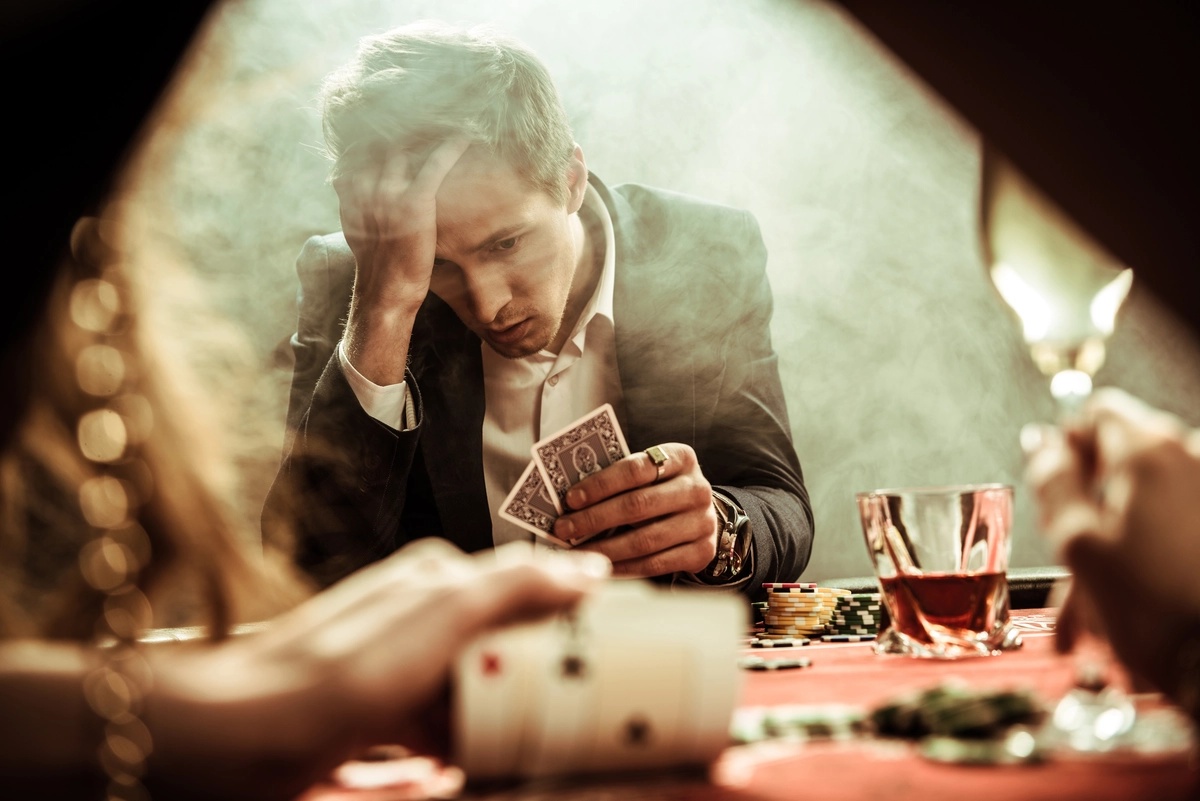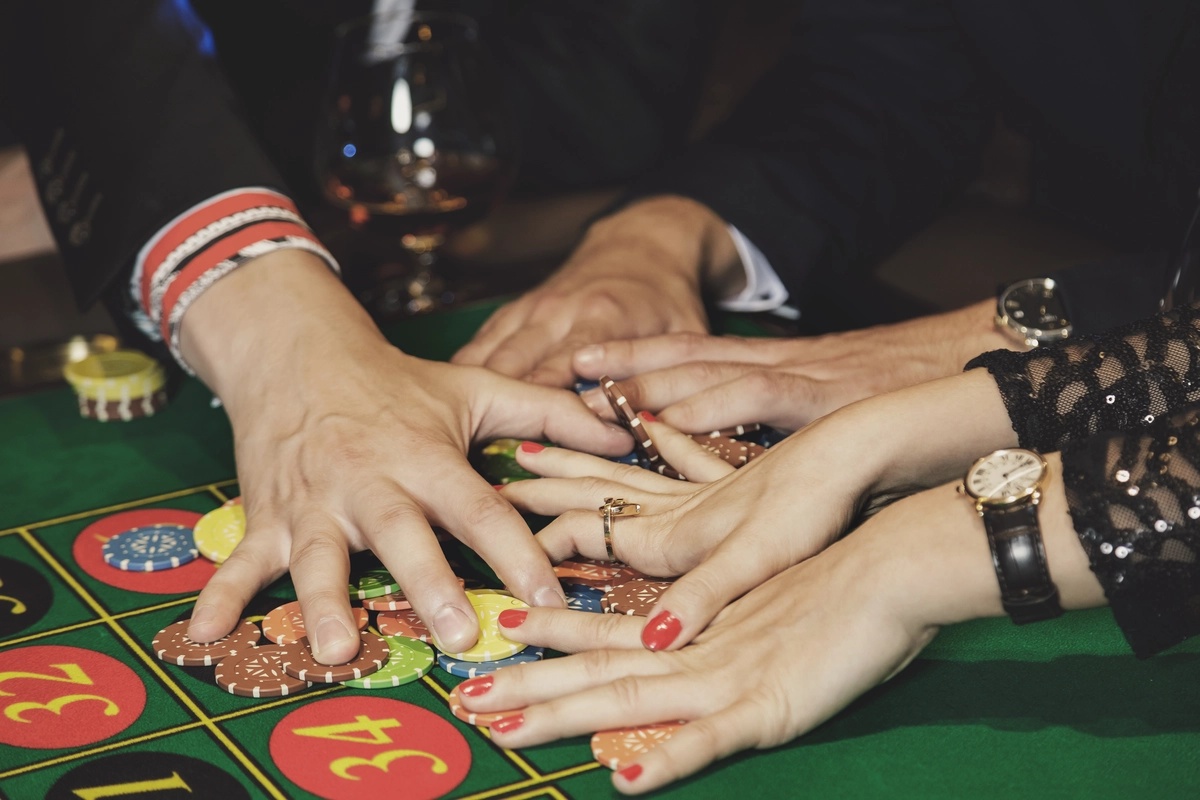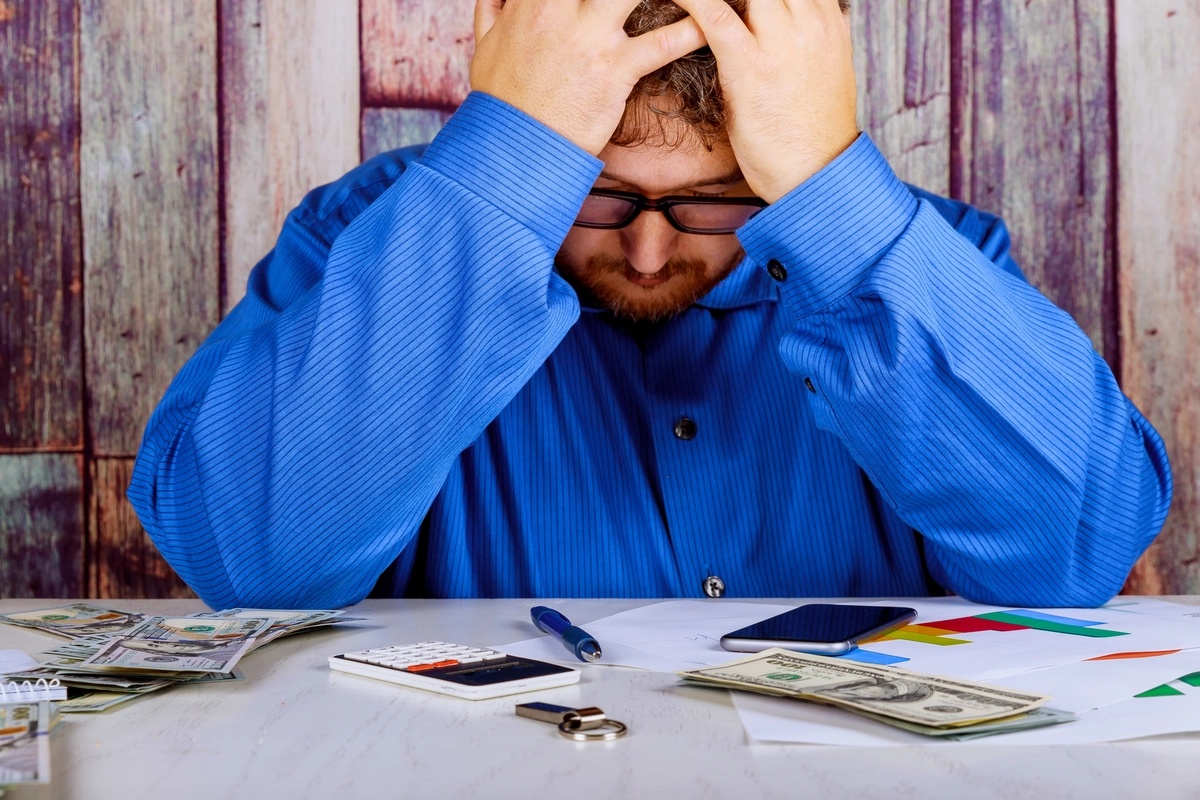Gambling Addiction: Symptoms, Causes, & Treatment Options


Living with a gambling addiction is an overwhelming struggle. The financial strain and turmoil it brings can be daunting, along with the strain on your mental health and closest relationships. But there’s hope, and recovery is possible with professional support. Learn more about the symptoms, causes, and treatment options for gambling addiction, and call The Forge Recovery Center today if you or someone you care about needs help on the road to recovery.
What Is Gambling Addiction?
Gambling addiction, also known as compulsive gambling or gambling disorder, is a condition where an individual cannot control their urge to gamble despite negative consequences. It is characterized by a persistent need to gamble, lying about gambling habits, and risking relationships or financial stability due to excessive gambling. People with gambling addiction may experience withdrawal symptoms when trying to stop gambling and may continue to gamble even when they are aware of the harm it causes. Treatment for gambling addiction often involves therapy, support groups, and in some cases, medication to help manage impulses.
A Diagnosable Mental Health Condition
Recognized as a mental health condition, gambling addiction — or “gambling disorder” — can have profound effects on your psychological well-being. You may feel restless or irritable when attempting to cut back on gambling, experiencing withdrawal symptoms similar to those seen in substance abuse disorders.

Symptoms & Signs of Gambling Addiction
Common symptoms or signs of gambling addiction include an unshakable preoccupation with gambling, past and unsuccessful attempts to quit, and irritability when trying to gamble less or stop cold turkey. Let’s explore these symptoms further:
Preoccupation
If you find yourselves constantly thinking about gambling, planning the next bet, or reminiscing about past wins, these could be signs of a gambling addiction. When you’re addicted to gambling, you may feel a strong urge to gamble even when they know it's not in their best interest. This can result in spending more time and money on gambling than you can afford, neglecting your responsibilities and obligations in the process.
Unsuccessful Attempts to Quit
Despite numerous attempts to stop or cut back on gambling, if you find that you continuously fail and return to the habit, it might indicate a deeper issue. One of the reasons why it can be difficult to break free from gambling addiction is the way it affects the brain. When you gamble, your brain releases chemicals such as dopamine, which are associated with pleasure and reward. Over time, your brain becomes accustomed to these chemical reactions, making it harder to resist the urge to gamble even when you know it's harmful.
Restlessness and Irritability
Feelings of restlessness or irritability when trying to reduce or stop gambling can be clear signals of an underlying gambling addiction. When dealing with gambling addiction, recognizing these symptoms early is crucial in seeking help and support. Remember, acknowledging the problem is the first step toward recovery.
Are You Struggling with Mental Health or Addiction?
We Can Help. Call Us Now!
CALL: 877-839-1772
Gambling Addiction Treatment Overview
Gambling addiction is typically treated with therapy and potentially support groups, such as Gambler’s Anonymous. Recovery programs — or addiction treatment centers — are also popular for their end-to-end care, which includes therapy and support groups in one convenient program. Here’s a summary of the treatment pathways for gambling addiction:
Therapy
When seeking treatment for gambling addiction, therapy plays a crucial role. Different types of therapy are utilized to address this issue effectively. Counseling is a common form of therapy that helps individuals understand the root causes of their addiction.
Support groups, such as Gamblers Anonymous, provide a platform for individuals to share their experiences and receive encouragement from others facing similar challenges. Group therapy fosters a sense of community and belonging, which can be instrumental in recovery.
In some cases, medication may be prescribed in conjunction with therapy to manage underlying mental health conditions that contribute to gambling addiction. Medications like antidepressants or mood stabilizers can help alleviate symptoms and support the recovery process.
Recovery Programs
Recovery programs for problem gamblers typically consist of various components aimed at addressing the multifaceted nature of the disorder. These programs often include cognitive-behavioral therapy (CBT) to help individuals identify and change harmful thought patterns and behaviors related to gambling, and take place in either inpatient or outpatient mental health treatment centers.
Family therapy is an essential component of recovery programs as it involves loved ones in the healing process. Including family members in therapy sessions can help rebuild trust, improve communication, and strengthen familial bonds damaged by the addiction.
What Causes Gambling Addiction?
The causes of gambling addiction are multifaceted and can stem from five main causes: genetic dispositions to gambling, environmental influences, psychological triggers, the brain’s reward system, and whether or not you were exposed to gambling early in life. Let’s take a deeper look at these causes and why they drive gambling addiction:
Genetic Factors
Genetic factors can play a significant role in the development of pathological gambling. If you have family members who struggle with gambling addiction, you may be at a higher risk. Gambling tendencies can sometimes run in families, indicating a possible genetic predisposition to developing an addiction.
Environmental Influences
Your environment can also contribute to the development of pathological gambling. Growing up in an environment where gambling is prevalent can normalize this behavior for you. Exposure to gambling at a young age, whether through family members or social circles, can increase the likelihood of developing an addiction later in life.
Psychological Triggers
Psychological factors, such as stress, anxiety, or depression, can also lead to pathological gambling. Using gambling as a coping mechanism for these issues can escalate into addiction. If you find yourself turning to gambling as a way to escape negative emotions or situations, it's essential to address these underlying psychological triggers.
Early Exposure to Gambling
Early exposure to gambling activities, such as playing card games for money during childhood or adolescence, can desensitize you to the risks associated with gambling. This normalization of gambling behavior from a young age can lay the foundation for addictive patterns later in life.
Brain Chemistry
The brain's reward system plays a crucial role in pathological gamblers' behavior. When you engage in gambling activities, your brain releases dopamine, creating feelings of pleasure and reinforcement. Over time, repeated exposure to this dopamine rush can rewire your brain's reward pathways, leading to compulsive behavior and addiction.
Are You Struggling with Mental Health or Addiction?
We Can Help. Call Us Now!
CALL: 877-839-1772
Effects of Gambling Addiction
Gambling addiction carries a handful of adverse effects that touch every aspect of life, from your finances and relationships to work performance, emotional health, and even social well-being. Here’s an overview of the impact gambling addiction can have on your life if left untreated:
Financial Impact
Gambling addiction can devastate your finances, leading to debt, bankruptcy, and loss of assets. Your savings and income may disappear rapidly. Gambling addiction often results in financial instability, making it challenging to meet basic needs. Your financial security is at risk.
Relationship Strain
Your relationships suffer due to gambling addiction. Trust issues arise as loved ones feel neglected and betrayed by your actions. Family dynamics are disrupted, leading to arguments, resentment, and potential breakdowns in communication. Your loved ones may feel hurt and isolated.
Work Performance
The consequences of gambling addiction extend to your work life. Your focus diminishes as thoughts of gambling consume your mind. Your job performance declines due to distractions and preoccupation with gambling activities. This can result in reprimands or even job loss.
Emotional Toll
The emotional toll of gambling addiction is profound. You may experience feelings of guilt, shame, and hopelessness as the addiction takes hold. Anxiety and depression often accompany gambling addiction, impacting your mental well-being and overall quality of life. Seeking help is crucial for emotional healing.
Social Consequences
Gambling addiction not only affects you but also has wider social repercussions. Your behavior may lead to strained friendships and social isolation. Community trust may erode if your gambling addiction involves deceit or manipulation. Rebuilding relationships requires honesty and commitment to change.

Self-Help Strategies
If you’re struggling with gambling addiction and attempting to stop, or are having trouble managing the craving to gamble, here are some self-help tips to guide your efforts:
Stopping Gambling
Making Healthier Choices
When it comes to making healthier choices to avoid gambling triggers, you can start by identifying situations that lead to gambling urges. Setting boundaries is crucial; establish limits on time and money spent on gambling activities. Strengthen your decision-making skills by weighing the consequences of your actions.
Finding Alternatives
To overcome gambling addiction, you should consider alternative activities to replace the urge to gamble. Engage in hobbies or interests that bring joy and fulfillment. It's essential to find healthy outlets for stress and emotions, such as exercise or artistic pursuits.
Managing Urges
Coping with Cravings
When facing cravings for gambling, distract yourself with activities like reading or going for a walk. Mindfulness techniques can help you stay present and manage cravings effectively. Developing self-awareness about triggers can empower you to resist the urge to gamble.
Handling Lapses
If you experience a relapse, practice self-forgiveness and view it as a learning opportunity. Seek support from loved ones or a therapist to navigate through setbacks. Recommitting to your recovery journey after a lapse is crucial for long-term success.
Are You Struggling with Mental Health or Addiction?
We Can Help. Call Us Now!
CALL: 877-839-1772
The Role of Family
For individuals dealing with gambling addiction, family support is key to identifying the addiction, recognizing the need for treatment, and ultimately starting and maintaining efforts to recover:
Effective Support
When dealing with gambling addiction, having a strong support system is crucial. Family members play a significant role in providing the necessary encouragement and understanding. They can help you navigate the challenges of overcoming addiction by being there for you.
Support groups also play a vital role in your journey towards recovery. These groups offer a sense of community and understanding that can be invaluable. They provide a safe space to share experiences, learn from others, and gain multiple relationships that foster growth.
To effectively communicate with your loved ones about gambling addiction, it's essential to be open and honest. Clearly express your struggles and emotions while listening actively to their concerns. By maintaining open communication, you can build trust and strengthen your relationships.
Emotional Support Tips
Providing emotional support to someone struggling with gambling addiction requires empathy and active listening. Try to show your understanding of their challenges without judgment; your presence and willingness to listen can make a true impact on their recovery journey.
Expressing care and concern for your loved one dealing with gambling addiction is the ultimate goal, as it can provide them with much-needed comfort. Let them know that you are there for them unconditionally and ready to support them through their ups and downs. Here’s a list of quick tips to guide you as you support your loved one on their road to recovery:
Offer a listening ear without interrupting.
Encourage seeking professional help if needed.
Avoid blaming or shaming language in conversations.
Show genuine interest in their well-being.
Provide reassurance of your continuous support.
Preventing Gambling Relapse
Preventing gambling relapse is a matter of recognizing and managing your triggers, and building the necessary resilience for a long-term recovery. Let’s discuss how you can go about implementing these strategies:
Recognizing Triggers
When it comes to identifying triggers, pay attention to situations, emotions, or even specific people that spark gambling thoughts. Self-awareness plays a crucial role in recognizing these triggers. By understanding what prompts your urges, you can take proactive steps to avoid them.
To effectively manage triggers, consider limiting exposure to environments where gambling is prevalent. Avoidance is key; if certain places or activities trigger cravings, steer clear of them. Engage in alternative hobbies or activities to distract yourself when triggers arise.
Building Resilience
Building resilience is vital for maintaining long-term recovery from gambling addiction. Coping skills are essential tools in this journey. Develop healthy coping mechanisms such as meditation, exercise, or seeking support from loved ones.
In the recovery process, focus on enhancing your emotional strength. By nurturing resilience, you equip yourself with the ability to bounce back from setbacks and challenges. Resilience enables you to face temptations and triggers with a stronger mindset.
Resilience offers various benefits in overcoming the hurdles of gambling addiction. It empowers you to navigate through difficult times without resorting to harmful behaviors. By cultivating resilience, you enhance your capacity to withstand temptations and maintain sobriety effectively.

Are You Struggling with Mental Health or Addiction?
We Can Help. Call Us Now!
CALL: 877-839-1772
Gambling Addiction Statistics
Gambling addiction affects millions of Americans worldwide and is unfortunately prevalent among younger demographics. Below, we’ve gathered the latest data on gambling addiction, including prevalence rates and the social impact of this condition:
Prevalence Rates
When it comes to gambling problems, statistics show that approximately 1% of Americans struggle with severe gambling addiction. This translates to 2.5 million U.S. adults facing the detrimental effects of compulsive gambling. Additionally, 5-8 million (2% to 3%) Americans could be considered to have a mild or moderate gambling problem.
Research indicates that problem gambling affects people across all age groups, with a higher prevalence among young adults. The anonymity offered by online gambling platforms has further exacerbated this issue, making it easier for individuals to develop addictive behaviors.
Financial & Social Impact
The economic repercussions of gambling addiction are profound, not only for the individuals directly involved but also for society as a whole. Financial instability, debt accumulation, and bankruptcy are common consequences experienced by those battling gambling addiction.
Moreover, the societal costs associated with problem gambling extend beyond individual financial struggles. Increased crime rates, strained social services, and decreased productivity in the workforce are all outcomes linked to unchecked gambling addiction.
Closing Thoughts
In understanding gambling addiction, you've learned about its symptoms, treatment options, causes, effects, self-help strategies, family's role, prevention methods, potential complications, and relevant statistics. By recognizing the signs early and seeking appropriate help, you can effectively manage this issue. Remember that support from loved ones is crucial in your recovery journey. Stay informed about the risks and always prioritize your well-being. If you or someone you know is struggling with gambling addiction, don't hesitate to reach out for professional assistance. Your health and happiness are paramount.
Treatment for Gambling Addiction in Orange County
At The Forge Recovery Center, we empathize with the stark challenges that gambling addiction can impose on your life. Left unchecked, it can lead to severe financial and emotional distress, underscoring the urgency for intervention — and we’re here to lend a hand. Our dedicated team of mental health and treatment professionals is prepared to support you with a range of effective therapies to steer you toward a life free from the compulsion to gamble.
Explore our treatment approaches below, and call The Forge Recovery Center today if you or someone close to you is ready to triumph over gambling addiction.



